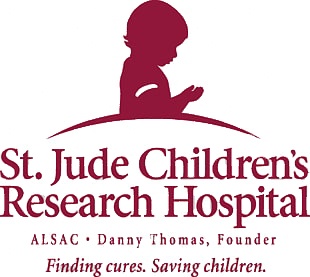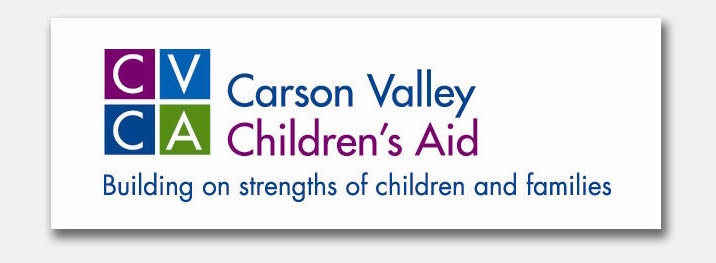Basar Group support the continue development of the human mindset through high impact value philanthropic organizations that are local, national and internationally focused on adding value to the human experience. Our developing mind set is about what we see, think, and believe it is a way of life and It is the internal lens through which you see and navigate life. The competitive capitalist mindset influences everything we see, as well as everything you do. It is the very thing which drives us to the vast gaps in inequality and most often exemplified by who we are as developing humans. Today more and more family office and global investor are investing in opportunities that have a ESG or social impact value.
Often our mind set comes from our social engineering and environment. Mindset is who you really are at your core and it is layered in exaggerated difference from birth. It’ becomes your habitual way of thinking and it is concealed by low self esteem and arrested development. While it’s not easy to change, the purpose of life is to evolve and become a better human being. So one should think about these human qualities from time to time and always endeavor to do better. Your mindset is what really differentiates you from your peers. If you work hard at developing what is call being human you’ll set yourself up for success in work and in life.“Men acquire a particular quality by constantly acting in a particular way.”—Aristotle
First and foremost, investment professionals must be empathetic. As leaders, the primary focus of leadership is on the wants and needs of the people who rely on us to better their lives and standard living. Empathy enables you to understand other people’s motivations, needs, and emotions more deeply, and you can use that understanding to create better products to protect their investments from speculation and risk. Having empathy lets you accurately perceive people’s needs—without your own lens introducing any distortions or occlusions. Whether you’re a billionaire, researcher, strategist, fund manager and general partner , empathy is an essential quality for you to become fully human. Being empathetic lets you look at things from a diversity of perspectives and internalize your diversity of human characteristics. Carl Yung the famous psychologist states “that those in human form but bereft of human qualities and characteristics are not fully human”.
Having empathy—whether for colleagues, family, or friends—comes from focusing on someone else’s needs, struggles, and feelings. What makes us fully human is having empathy for someone that has no relationship with you or social benefit to serve our ego. It requires that you open your heart to them and put their needs before your own. Most developing humans do not have empathy for humans that are different culturally, socially and economically from themselves. This is called the self view operates very often from the competitive mind state and perceives empathy as weakness and the exploitation of greed as good, often this appears as ambition. The evolution of animals or survival of fittest is the evolution towards becoming human.
Exaggerated differences is the path to be human- to be human requires faith in it’s own diversity, also to be human requires self-reflection in its own diversity of characteristics, to live fully as humans- requires us to share in this self reflection and development of our own diversity. Shared diversity is where you explore and discover your commonality which helps you discover your humanity. One of the qualities that derive from the discovery of your humanity is gained from gratitude the key to happiness. One of the great gratitude of being human is to appreciate the fact that you have vision to see and parents that nurture you while providing a home for you and care for you in sickness and in health. And it is from this gratitude and success that we have selected charities that serve the qualities that enhance our human gratitude for family, vision, and child health care for those without wealth or parents.
In celebration of its 100-year milestone, Carson Valley Children’s Aid has launched a fundraising campaign to raise $3 million to restore and renovate the residential cottages on its Flourtown campus. Founded by Robert Carson in 1917, the campus was set to be an orphanage for young girls, functioning in similar vein to Girard College in Philadelphia for boys at the time. Currently, Carson Valley is open to both boys and girls between the ages of 12 to 19 who have experienced trauma in their lives from sexual abuse, neighborhood and home violence and/or behavioral health problems.Carson Valley has 29 different programs and services that include behavioral health, early childhood education, family services, substance abuse prevention, intervention, and residential and home services in neighborhood centers in Allegheny West, Logan Olney, Norristown, New Covenant and Flourtown. Many of the students at Carson Valley come from impoverished neighborhoods where lack of resources make trauma common to children at an early age.
“People who are in poverty don’t have a way to get help,” said Susan Yeager, coordinator of the Cottage Restoration Campaign.One hundred students live on the 100-acre campus within one of the five residential cottages, each with a unique name, that has 24-hour staff available to provide a safe haven for them. During the day, middle and high school students go off to their respective school on the campus, where they learn reading, math, science and health fundamentals in a small classroom settings. There are therapists in the school available to supply support to students at any time.

St. Jude Children’s Research Hospital
St. Jude Children’s Research Hospital is leading the way the world understands, treats and cures childhood cancer and other life-threatening diseases. It is the only National Cancer Institute-designated Comprehensive Cancer Center devoted solely to children. Treatments developed at St. Jude have helped push the overall childhood cancer survival rate from 20 percent to 80 percent since the hospital opened more than 50 years ago. St. Jude freely shares the breakthroughs it makes, and every child saved at St. Jude means doctors and scientists worldwide can use that knowledge to save thousands more children. Families never receive a bill from St. Jude for treatment, travel, housing and food — because all a family should worry about is helping their child live. To learn more, visit stjude.org or follow St. Jude on social media.
Established in 1989, Al-Basar International Foundation (BIF) is a leading non-government, non-profit organization, working in the field of prevention of blindness. BIF was launched with the vision of a world free from avoidable causes of blindness. We provided therapeutic, preventative and educational programs to manage blindness and visual impairment in developing countries on a regional and international scale.
Having its own comprehensive blindness control program, BIF executes its work by three means:
- Al-Basar Caravans
These are quality assured mobile out-reach programs, “free eye camps” with the facilities addressing eye problems in remote areas. The delivering of eye-care is in mass and it includes pre-operative evaluation, optical dispensing, medical and surgical management as well as a complete schedule of post-operative follow-up visits. - Eye Hospitals
Self-sustained charity eye hospitals delivering secondary and tertiary eye care - Human Resource Development facilities
Institutes and colleges to train eye care personnel (ophthalmologists, nurses, technicians and other eye paramedics)
This work is managed through the Foundation’s Head Office in Al- Khobar, Saudi Arabia, through the Board of Directors, which consists of six members in addition to the Secretary General and the medical Director.
The Board of Directors lays out the general strategies, approves the annual plans and supervises the field work in each sector. Each sector or region is directly linked to one of the board directors.
Achievements during the last 30 years include :
- 24 self-sustained specialized eye hospital
- Conduct more than …….. free out-reach eye care delivery (eye camps)
- Covered 46 countries in Asia and Africa
- 2 H.R. Development centers, one in Asia (Pakistan) and the other in Africa (Sudan)
- Establish strong ties and partnership with the major stake holders and other NGOs working in the field of ‘prevention of blindness’

